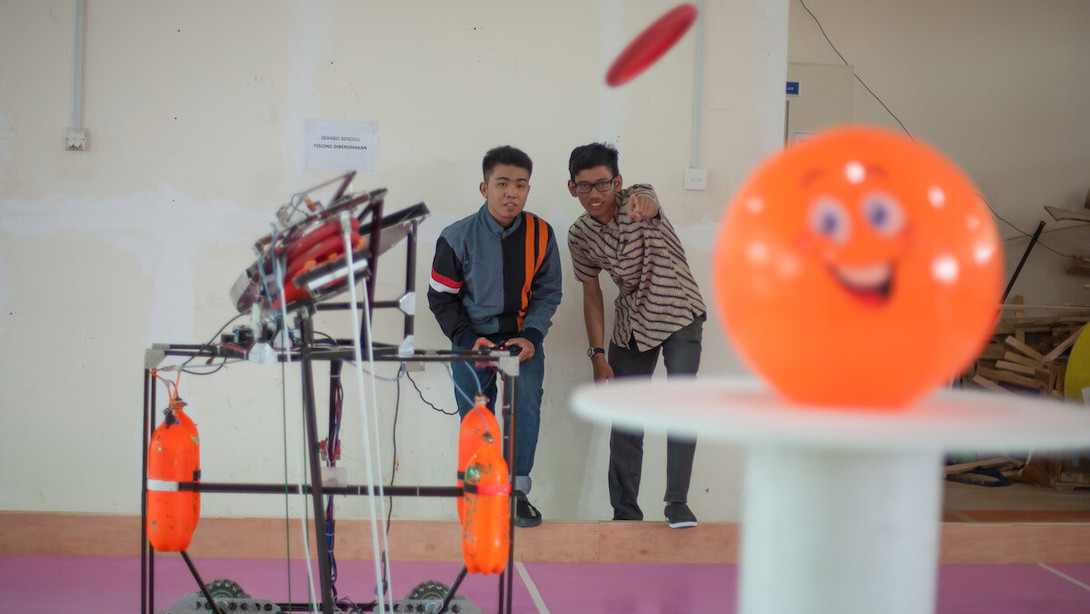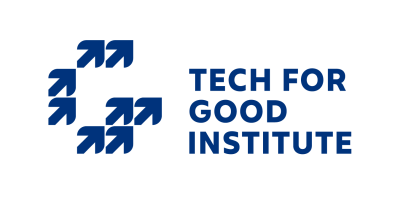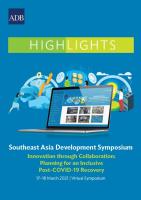Understanding Data and AI Regulations in Southeast Asia

Priyanka Sahoo Intern (Former), Tech for Good Institute

A student and his professor calibrate settings of a frisbee-shooting robot at the Batam State Polytechnic in Indonesia. Photo credit: ADB.
While Southeast Asia should leverage on data and artificial intelligence, governments should set up safeguards to ensure these technologies promote human dignity.
This article is published in collaboration with the Tech for Good Institute.
The World Bank estimates that over the past 15 years, the digital economy has grown 2.5 times faster than the global gross domestic product. In Southeast Asia, the digital economy is rapidly growing with the recent e-Conomy report noting that the region has hit $200 billion in gross merchandise value in 2022—3 years faster than the earlier projections. As the digital economy grows at this rapid pace, discussions of key components of the digital transformation have been gaining considerable attention. Two key areas where value can be created is in data and artificial intelligence (AI).
While the benefits of harnessing data and AI are well-recognized in the region, governments are also thinking about minimizing unintended consequences of tech. With a focus on Southeast Asia, the Asia Society has published the Raising Standards on Data and AI, a report highlighting the need to bring in human factor considerations, adapting the technology in line with the local context, and introducing appropriate regulations for both data and AI.
Promoting human dignity
The report includes a comprehensive repository of existing rules and current issues on governing data and AI in Indonesia, Malaysia, Singapore, Thailand and Viet Nam. The recommendations highlight the need to incorporate five key principles in regulations: agency, care, equity, inclusion, and reliability. A key insight the report puts forward is the belief that technologies using data and AI should promote human dignity.
Several other researchers have also pointed out similar gaps in the tech regulatory landscape in Southeast Asia. For example, scholars point to the need for policymakers to consciously promote inclusive digital economies as the accelerated growth has also led to an increase in the digital divide between urban and rural areas; large firms and micro, small, and medium-sized enterprises; and between men and women. In addition, an analysis of regulatory developments in the ride-sharing sector in Southeast Asia have identified that the approach followed by governments has been mostly top-down, compromising inclusivity in the process. Industry scholars note that regulators should be aware of the potential complexity of human-technology interaction and proactively legislate on ethical issues that cannot be undermined and have catastrophic implications.
Setting standards
The report by Asia Society adds to the growing body of work on human-technology interaction. Not only does it talk about protecting humans from possible vulnerability while embracing digital technologies, but goes a step further in discussing the different avenues that human-centric policies can be designed to adequately address their needs. Furthermore, this report calls for Southeast Asian countries to lead the way in setting their own standards.
For governments in the region, there are several key factors to consider when developing frameworks for data and AI. Southeast Asia’s digital development is varied across the region, with each country in different stages of their digital transformation journey. It is important to consider the timing and appropriateness of frameworks to ensure that regulations do not hinder investment and innovation. In addition, the multi-stakeholder approach should start with a common understanding of the technology and the envisioned end-goal for the society. A recent workshop conducted by Tech for Good Institute with stakeholders in Viet Nam highlights the importance of having an alignment in definitions and expectations in financial inclusion. The same should be the case with discussions around data and AI.
Finally, the importance of personal dignity in human-technology interaction is crucial. In advancing the use of digital technologies, this principle ensures that the promise of technology for a more inclusive society is realized.
This article was first published by the Tech for Good Institute on 7 December 2022.

Priyanka Sahoo
Priyanka Sahoo Intern (Former), Tech for Good InstitutePriyanka Sahoo worked with the Tech For Good Institute, a think tank set up by Grab, to promote dialogue in Southeast Asia among civil society, government, and private sector stakeholders to realize the full potential of technology in achieving social impact.

Tech for Good Institute
The Tech for Good Institute is a nonprofit organization working to leverage the promise of technology and the digital economy for inclusive, equitable, and sustainable growth in Southeast Asia. The Institute is seed funded by Grab, a leading superapp in Southeast Asia.


